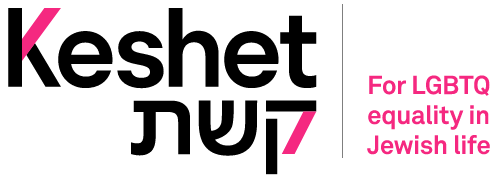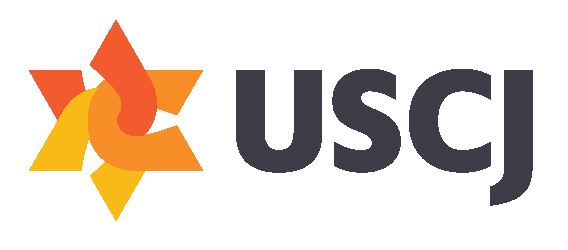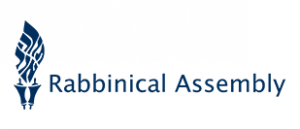Balak: Be A Spiritual Broken Record
Sermon given July 12, 2025
Shabbat shalom, everybody.
I’m Rabbi Simmons, and I’m very happy to be here today with all of you. There are all kinds of things I could share about myself in this moment– how I’m from the DC area, how my new life goal is to see a moose, how I have two cats named Kohelet and Galilee, how my pronouns are they or she, how I love singing Adon Olam to Disney melodies and my favorite trope is Eicha– but there will be lots of time for fun rabbi facts in the weeks to come, and Torah waits for no one.
Let’s just suffice to say that I feel so lucky to be your new Rabbi, and I very much would like to get to know each of you and your stories and questions and ideas.
For those of you who were here last Shabbat, or if you had the opportunity to watch online or to read the text of my first sermon in the weekly email, you’ll know that last week I spoke about sacred transitions, and about how important it is for us as a community to be intentional as we navigate our current transition together. Using the story of the transition from one High Priest to another in our Torah portion, we explored how transitions in general are opportunities to honor the past, to feel the emotions we are holding in this moment, and also to intentionally commit to moving forward together, turning towards one another in times of both joy and challenge.
And if all of that sounds like it’s right up your alley, I have good news for you– we are still going through a big transition, and we will be for a good while– so this is an ongoing conversation and theme, and one which will undoubtedly continue to influence us all in the coming months.
However, this week in particular I’d like to pivot a little in our sermon focus. Our Torah portion for this week, Balak, is fascinating in a different way– it has everything from blessings to curses to an invisible angel to a talking Donkey. More importantly, though, this week’s Torah portion offers us a main Character, Bilaam, who is in spiritual crisis, who is being ordered by a person in power to do something he is not comfortable with, something that goes against his own convictions. Our Torah this week offers a model of someone who is actively balancing his respect for human authority and power structures with his sacred bond to God and humanity and his own conscience. And it is that kind of struggle, and that kind of balance, that we are going to focus on in our sermon today.
To set the stage for our Torah portion, Balak, the Moabite king, is afraid. He sees the large number of Israelites encamped near his peoples’ borders and, out of fear, he orders the prophet Bilaam to curse them. Bilaam, as a private citizen, has to figure out how to respond to this order from his leader. The king clearly has great faith in the power of Bilaam’s words, saying
כִּ֣י יָדַ֗עְתִּי אֵ֤ת אֲשֶׁר־תְּבָרֵךְ֙ מְבֹרָ֔ךְ וַֽאֲשֶׁ֥ר תָּאֹ֖ר יוּאָֽר:
"I know that whomever you bless will be blessed, and whomever you curse will be cursed.”
No pressure, right? We can certainly imagine how Bilaam must have felt when he received this command. He was being ordered by his leader to harm others. Others he did not know personally. He was being told that harming these others would improve the safety and security of his own people.
Our commentator Sforno also points out that it was a telling choice made by the King to ask Bilaam to curse the Israelites, instead of asking Bilaam to bless the Moabites. Bilaam, as the King acknowledged, had the power to either bless or curse. Imagine how the King’s choice influenced the rest of the story, and how our story may have been different had the king focused instead of putting more blessings out into the world– but I digress. Ultimately, the King made his choice, to move forward with an agenda of cursing– and this choice impacted what followed.
Meaning that Bilaam was placed in a very difficult position. And faced with such a difficult set of instructions, Bilaam models nuance and caution. His immediate reaction is neither agreement nor condemnation. Instead, he says that he wants to wait before acting: he wants to pray, to talk to God, to think, to gather information. He says to the messengers from the King, who bore him news of the command to curse the Israelites, quote:
לִ֤ינוּ פֹה֙ הַלַּ֔יְלָה וַֽהֲשִֽׁבֹתִ֤י אֶתְכֶם֙ דָּבָ֔ר כַּֽאֲשֶׁ֛ר יְדַבֵּ֥ר יְהֹוָ֖ה אֵלָ֑י
"Stay here for the night, and I will let you know what God tells me to do.”
From the beginning, then, Bilaam demonstrates how we must look within ourselves to balance our immediate loyalty to our human leaders with our loyalty to an even greater authority– in this case, to God. Of course, the word God here could be replaced with morals, or ethics, or common decency– but regardless, Bilaam understands that there will be multiple factors informing his decision, and that he is not only beholden to the wishes of his king, but also to his own conscience and to humanity.
And as it turns out, once Bilaam has slept and prayed and spoken to God, he refuses to curse the Israelites, even though his king has commanded him to do so. In fact, he states that he can only do whatever God allows him to.
This must have taken a lot of bravery– it’s not easy to stand up to human authority, especially a king. And when the messengers return to the King to report Bilaam’s refusal, the king persists, not accepting “No” as a valid answer, which would have added to Bilaam’s discomfort.
When ultimately, after further pressure, Bilaam unhappily agrees to go with King Balak, albeit with God’s permission, he still makes a point of expressing yet again to the king that while he will go along, he can still only say what God allows him to say.
So, what happens when the King and Bilaam arrive at a mountain overlooking the Israelites’ encampment, and the King yet again orders Bilaam to curse the masses below? As the two men stand there, building pyres for burnt offerings, and Bilaam’s commander-in-chief yet again demands that he harm the group of humans who are different from them, what does Bilaam do that is so impressive? What does he do that can teach us, and inspire us, toady?
He becomes, quite frankly, a spiritual broken record. Again, and again, and again, as King Balak and Bilaam move from vantage point to vantage point around the camps of the Israelites, as the King persists and persists and persists with his agenda of cursing, of wanting to weaken and harm the Israelites, Bilaam instead blesses the Israelites, and repeats himself to his king, reiterating:
הַדָּבָ֗ר אֲשֶׁ֨ר יָשִׂ֧ים אֱלֹהִ֛ים בְּפִ֖י אֹת֥וֹ אֲדַבֵּֽר:
That which God puts in my mouth, I will say.
And then:
הֲלֹ֗א אֵת֩ אֲשֶׁ֨ר יָשִׂ֤ים יְהֹוָה֙ בְּפִ֔י אֹת֥וֹ אֶשְׁמֹ֖ר לְדַבֵּֽר:
Isn’t what God puts in my mouth what I will say?
And finally,
הֲלֹ֗א דִּבַּ֤רְתִּי אֵלֶ֨יךָ֙ לֵאמֹ֔ר כֹּ֛ל אֲשֶׁר־יְדַבֵּ֥ר יְהֹוָ֖ה אֹת֥וֹ אֶֽעֱשֶֽׂה:
Did I not tell you that that which God says is what I will do?
This must have been downright terrifying for Bilaam. I want to say to him a hearty “Kol HaKavod”, well done. Respect. Because Bilaam identified his boundaries. He identified his values. And he stood by them. Again. And again. And again. Even in the face of an authority who had the power to harm him, and who was not hearing his words, he stood up for what he believed in.
Bilaam is not offering us a blueprint for widespread revolution here– he is offering us a blueprint for individual, intentional, meaningful spiritual resistance. The kind of resistance that each of us has the power to enact in our own lives, should we ever feel similar pressure to what Bilaam faced in the Torah this week.
Because the kind of struggle he felt is actually a deeply human type of struggle, a timeless struggle, one many of us have probably felt at some point in our lives. And the beauty of being part of such an ancient people is that we can look to our tradition, and look to our texts, for guidance and for chizzuk, for strength, on how to make choices and take actions we can stand behind, when faced with painful moral dilemmas.
Because even though it isn’t easy, or comfortable, it is incumbent upon all of us, each and every one of us, both as individuals and as communities,
To take the time and effort to identify what our core values are,
And to practice having those values guide our speech,
And to practice having those values guide our actions,
Over and over and over, just like Bilaam did, until it is our nature, until it is who we are, until we are known by those values, until those values are the essence of who we are.
And yes, it’s hard at first– but it gets easier with repetition. Plus, as with so many things, we are not alone in our personal struggles, and this is something that really excites me about being the new Rabbi of TBE.
Because this is a community that is actively examining and wrestling with exactly this question– who are we? What do we stand for? What is our tent? What are the core values which will guide everything from our finances to our policies to our programming? Where are the issues where we can say yes, and where are the issues where we must draw a line, like Bilaam, and say no, this is not who we are?
This is a community that is asking itself– when we see things happening in the world outside of these walls, or even within these walls, that does not reflect our core values: what can we do about it? What must we do about it? What are the actions, and the stances, that our conscience can live with, and what spiritual resistance can we, and must we, offer when those in power do not honor the sacred principles that guide us?
And for anyone who wants to be actively involved in these discussions, all you have to do is reach out– to the staff, to the lay leadership, to me, to each other– and join the conversation. Our values belong to all of us, and your voice can and should be heard.
I have hanging in my office here at TBE a list of Jewish values from Keshet, which I have used over the years as a default starting point for identifying the core principles that guide me as a Jew. The list is not exhaustive, but it includes:
1. Kavod– Respect
2. Shalom Bayit: Peace in the home or community
3. B’tzelem Elohim: Everyone is made in the sacred image
4. Kol Yisrael Arevim Zeh BaZeh: All of Yisrael is responsible for one another
5. Sh’mirat HaLashon: being intentional about our language
6. V’ahavta L’reicha kamocha: Love your neighbor as yourself
7. Al Tifrosh Min HaTzibbur: Stay in solidarity and connection with your community
I would encourage all of us, moving forward, to take the time to sit with and identify which parts of our Jewish system of values are most meaningful to us, as individuals and as a community. What inspires us, and drives us, and guides us?
Which are the beliefs that we know in our gut that we must live up to? Which are the aspirational beliefs, the ones we are still working on? Which are the ones we most wrestle with, especially when making decisions that impact the world around us?
I’d love to hear from you, whether today at Kiddush or another time, about the values you hold closest to your heart. These are the values which will guide us, as individuals and a synagogue community, as our city and state and nation and world face the tough road ahead. These are values which will guide us in our relationships to each other, to Israel, and to the wider world around us.
And in the moments where we falter, where we struggle, where we feel the very real fear rising in us, and the sinking feeling in our gut that tells us that our values, and our conscience, is indeed going against what we are being told to do– we can take heart in knowing that our tradition is one that celebrates and encourages bravery in the face of adversity, and celebrates ethical action in the face of fear-based reactivity. We can be brave, and we can help each other be brave.
Bilaam modeled this kind of bravery for us in today’s Torah portion, and now we get to model it too, for each other, for our children, and for the rest of our community and world.
Shabbat shalom– and, to be continued.
—-------------------
Rabbi Simmons would love to hear your thoughts. If you’d like to continue the conversation, reach out to office@tbemaine.org for assistance.



